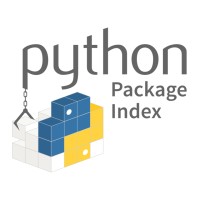
PyPI
The Python Package Index (PyPI) is a repository of software for the Python programming language



The Python Package Index (PyPI) is a repository of software for the Python programming language

A career at Booking.com is all about the journey, helping you explore new challenges in a place where you can be your best self. With plenty of exciting twists, turns and opportunities along the way. We’ve always been pioneers, on a mission to shape the future of travel through cutting edge technology, to make it easier for everyone to enjoy amazing experiences wherever they go. Under a desert sky, or in the heart of a bustling city. Discovering the perfect hideaway, or the perfect paella. When you join us, you’ll be part of a community where taking a different path and trying something new is celebrated and supported. And where making a difference counts. We’re determined to make the world of travel more sustainable, more accessible, and more inclusive, to create a positive impact on a global scale. That’s why we’re always looking for people who search for better solutions, the ones eager to stray off the beaten path to find new ways of doing things. Because at Booking.com it’s more than a job, it’s a journey we’re on together.
Security & Compliance Standards Overview












No incidents recorded for PyPI in 2025.
Booking.com has 581.82% more incidents than the average of same-industry companies with at least one recorded incident.
PyPI cyber incidents detection timeline including parent company and subsidiaries
Booking.com cyber incidents detection timeline including parent company and subsidiaries
Last 3 Security & Risk Events by Company
ThingsBoard in versions prior to v4.2.1 allows an authenticated user to upload malicious SVG images via the "Image Gallery", leading to a Stored Cross-Site Scripting (XSS) vulnerability. The exploit can be triggered when any user accesses the public API endpoint of the malicious SVG images, or if the malicious images are embedded in an `iframe` element, during a widget creation, deployed to any page of the platform (e.g., dashboards), and accessed during normal operations. The vulnerability resides in the `ImageController`, which fails to restrict the execution of JavaScript code when an image is loaded by the user's browser. This vulnerability can lead to the execution of malicious code in the context of other users' sessions, potentially compromising their accounts and allowing unauthorized actions.
Mattermost versions 11.0.x <= 11.0.2, 10.12.x <= 10.12.1, 10.11.x <= 10.11.4, 10.5.x <= 10.5.12 fail to to verify that the token used during the code exchange originates from the same authentication flow, which allows an authenticated user to perform account takeover via a specially crafted email address used when switching authentication methods and sending a request to the /users/login/sso/code-exchange endpoint. The vulnerability requires ExperimentalEnableAuthenticationTransfer to be enabled (default: enabled) and RequireEmailVerification to be disabled (default: disabled).
Mattermost versions 11.0.x <= 11.0.2, 10.12.x <= 10.12.1, 10.11.x <= 10.11.4, 10.5.x <= 10.5.12 fail to sanitize team email addresses to be visible only to Team Admins, which allows any authenticated user to view team email addresses via the GET /api/v4/channels/{channel_id}/common_teams endpoint
Exposure of email service credentials to users without administrative rights in Devolutions Server.This issue affects Devolutions Server: before 2025.2.21, before 2025.3.9.
Exposure of credentials in unintended requests in Devolutions Server.This issue affects Server: through 2025.2.20, through 2025.3.8.